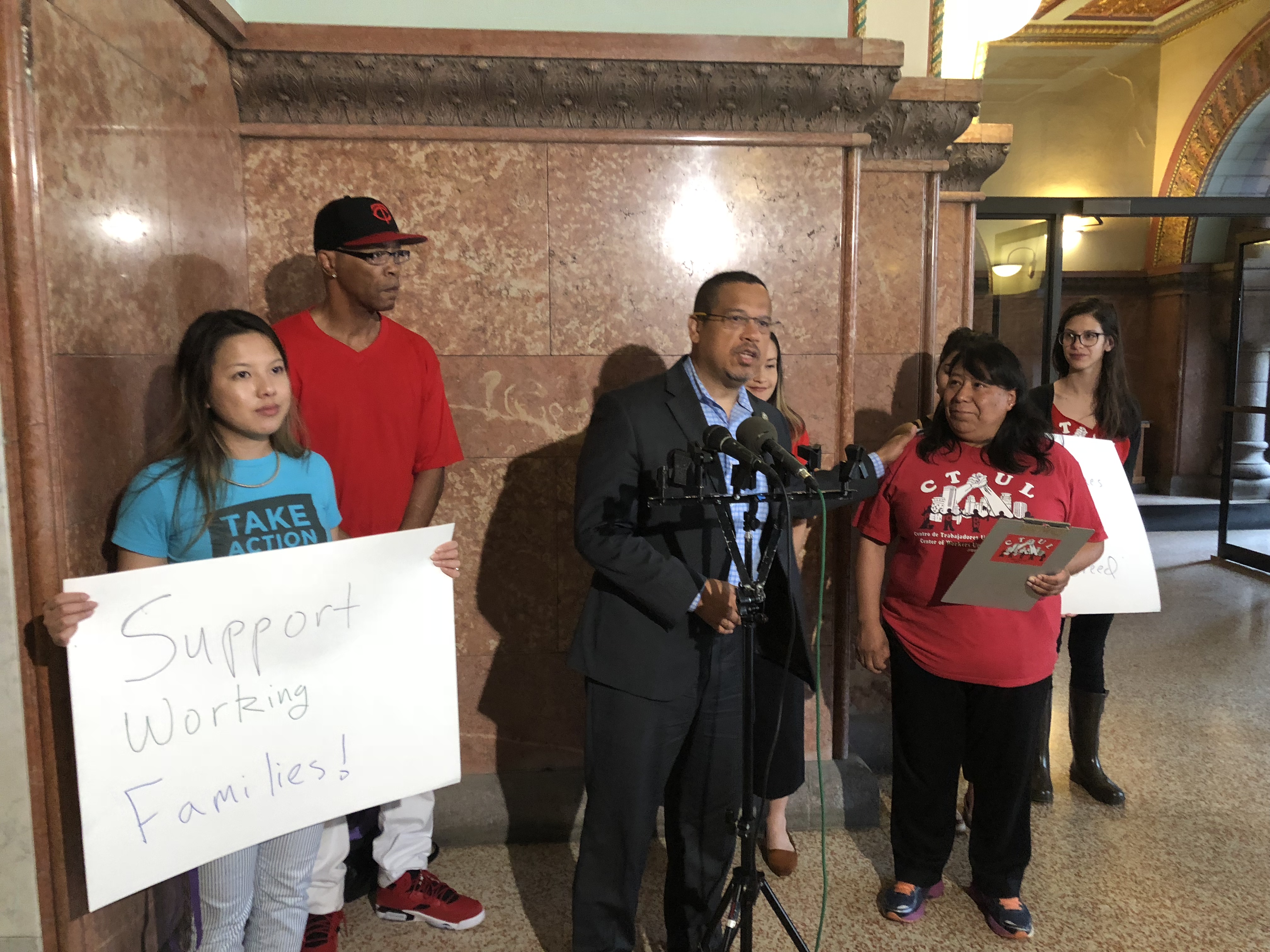

Share
Reggie Wright worked for one of the nine Burger King locations owned by P3 Foods LLC. On Wednesday, May 30th at a press conference in the Minneapolis City Hall, Wright described the systemic lack of compliance with the Minneapolis Living Wage Ordinance that he and his co-workers suffered. “We were supposed to have been given 10 dollars an hour, but we didn’t.” P3 filed for bankruptcy in October 2016, eventually shutting down all their locations in mid-April 2018.
Due to the bankruptcy, employees were fired en masse, leading many to struggle to pay their bills. Wright, along with the other former P3 employees, met with Minneapolis Mayor Jacob Frey. According to Wright, “The mayor said that he is going to do everything that he could to fight for us, and we look forward to that.”
As the Supreme Court continues to erode the rights of workers via rulings such as the Epic Systems Corp. v. Lewis denying workers the ability to collectively take legal action over workplace issues. Representative Keith Ellison, Minneapolis Council Member Phillipe Cunningham, and Minneapolis workers and supporters from the faith community gathered to call on politicians to support working families.
Local organizers have also decried these wage theft violations; in a press release CTUL, Centro de Trabajadores Unidos en Lucha, or Center of Workers United in Struggle, further explained,
“We are coming together to call for state and federal politicians to act to support working families and help us enforce $15 an hour and earned sick and safe time with dedicated funding to create resources to educate employees and employers on the new laws, outlaw retaliation, and put real penalties for violators in place.”
Councilmember Phillipe Cunningham is working on a Wage Theft ordinance along with Council President Lisa Bender to provide the resources and infrastructure to enforce the living wage ordinance, thereby offering greater protections for workers like Wright.
“I am proud to be standing with workers as a co-author to the wage theft ordinance,” Cunningham said. “My mother worked in low wage work. She had a criminal record due to an addiction. She was unable to secure work outside of minimum wage and under the table pay. She did not have equal rights as someone working with a criminal record. Now, to be able to be a council member standing alongside workers to say ‘no more’, to say this is unacceptable…I am so grateful for this opportunity.”
Carin Mrotz, Executive Director of nonprofit Jewish Community Action, explained how her views on wage theft coincide with the teachings of her faith. “An employer should never put profits before the welfare of a worker or deny any wages rightfully earned,” Mrotz said. “Working families need better. Just like we will keep organizing no matter who is in office to make sure the voices of working families are loud enough to hear, we need leaders at all levels who are willing to listen, to put people before corporations, and to ensure that all working people are respected and can live safe, secure and happy lives with dignity and fairness.”
Congressman Keith Ellison spoke to the eroding right of workers to form a union. “It is fair and it is right to have a union. Workers fight for them every day and yet we see assaults on that sacred right to be able to have a voice on your job. I believe the right to a union on your job is premised in the constitution based on the right to freedom of assembly and freedom of expression, and yet we know right now this right is under assault in the supreme court,” he said. “You better believe that the people that work the hardest are the people that make the least. To be told that your check is light, your check is not what you expected, not what you work for simply because, ‘hey, you know we can get away with it’ is particularly hard to understand.”
Wage policies that impact low-income communities also tend to disproportionately affect workers of color. According to CTUL, “Black and brown workers are the most impacted by wage theft. Corporations push back against enforcement because wage theft is related to their bottom line. Many people talk a lot about property theft and villainizing people of color, but wage theft is a far bigger problem and corporations are the real villains.”
Rampant wage theft is emerging at a time when, according to a study done by Congressman Ellison’s office, the inequity between the wages of the lowest paid workers and highest paid CEOs is the highest since the great depression.

While wage theft among provides a financial burden to low wage workers, CEO wages are proportionally higher in the U.S. than ever before. To combat this issue, three policy solutions are outlined by the report: higher taxes on top earners, “preferential treatment when bidding for government contracts” for companies with low CEO to low wage labor ratios, and a “tax penalty for publicly traded companies with pay gaps higher than 100:1.”
The report concludes stating that, “This report demonstrates an urgent need for lawmakers to enact policies to address the historically severe gap between CEO and worker pay.”


